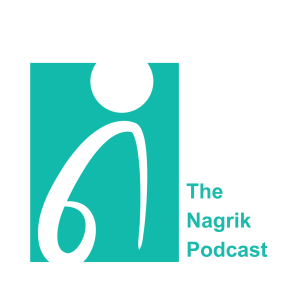
Monday Nov 30, 2020
Supply Chain Laws: Karuppuswamy, Rakesh Supkar, Friedel Hutz-Adams, Michael Fütterer, Christian Schliemann, Justin Nolan
Switzerland and Germany are considering binding laws for corporations to meet human rights standards in their overseas supply chains.
Cotton farms, spinning and weaving factories, and garment manufacturing factories are all part of the same supply chain for garments. Human rights violations have been documented all along it. For example, in 2011, reports emerged of the Sumangali scheme, a system of exploitative employment of young women in the spinning and garment factories of western Tamil Nadu. These factories supplied garments to major western brands that were sold in stores all around the globe.
The multinational corporations that search the world for cheap labour and raw materials and globalized economies of scale, like retail chains and the sellers of branded products such as clothing, footwear and food, are the most powerful actors in such supply chains. They are known as lead firms.
To become part of these supply chains, countries compete over the cost of land, infrastructure subsidies, wage and employment flexibility, and by avoiding trade unions. They even establish export processing zones where tax holidays, weak labour laws, and weak inspection provisions will apply. Suppliers from these countries must compete globally and lead firms have the power to set lower production prices for their products and shorter lead times to make and ship their products. This also reflects in the wages paid to workers. Even marginal improvements in wages and other conditions of work can be undercut by corporate decisions to source raw materials or other products elsewhere. The brunt of the exploitation on these globalised supply chains is faced by workers who are also otherwise marginalised, such as women and migrants.
While production processes may span several countries, the liability of employers under most laws and international conventions stop at the borders of each individual country. Local supplying companies, whether they are garment units in Tirupur or tea plantations in Assam, are unlikely to face accountability because administrative or judicial processes are too slow, weak or corrupt. At the same time, the lead firms, whether they are fashion retailers in the Netherlands or British tea brands, are usually immune from any legal accountability, since there is no cause of action or jurisdiction over them in either the host country or the home country.
Labour unions too, had become weak during the decades of globalisation. Along with human rights campaigners, they had to figure out how to bargain with the powerful lead firms, whether there were alternatives to their traditional methods, how workers all along the supply chain could collaborate, and how they could advocate directly with the consumers of the products.
The global conversation on business and human rights became more urgent because of some prominent cases of corporate negligence, such as the Rana Plaza disaster. The non-binding United Nations Guiding Principles on Business and Human Rights were developed on corporate responsibility for human rights violations. Now, countries like Germany and Switzerland are considering binding regulations on human rights standards.
In this episode of the Nagrik Podcast, we will learn about how campaigners took the concerns related to business and human rights to the doorsteps of the lead firms in global supply chains. We learn from:
Karuppuswamy, the founder of the Rights Education and Development Centre, an NGO working with spinning and garment workers in western Tamil Nadu
Rakesh Supkar, the Business Head of Traidcraft India, which helps businesses establish sustainable, fair and inclusive supply chains
Friedel Hütz-Adams, a researcher of agricultural supply chains at the SUEDWIND-Institute in Bonn
Michael Futterer of Transnationals Information Exchange (TIE), which works to develop international cooperation among workers and their organisations
Prof Justine Nolan of the University of New South Wales, who has researched corporate responsibility for human rights and modern slavery
Christian Schliemann, a Senior Legal Advisor at the European Center for Constitutional and Human Rights in Berlin
Additional material
Fair Labor Association, Understanding the Sumangali Scheme in Tamil Nadu's Garment and Textile Industry
Oxfam, Addressing the Human Cost of Tea
Clean Clothes Campaign, Fashions Problems
Equal Times, Child Labour and Exploitation in India's cotton fields
United Nations OCHR, Guiding Principles on Business and Human Rights - Implementing the United Nations "Protect, Respect, and Remedy framework
Freshfields, Germany takes a step closer to mandatory human rights supply chain due diligence
No comments yet. Be the first to say something!